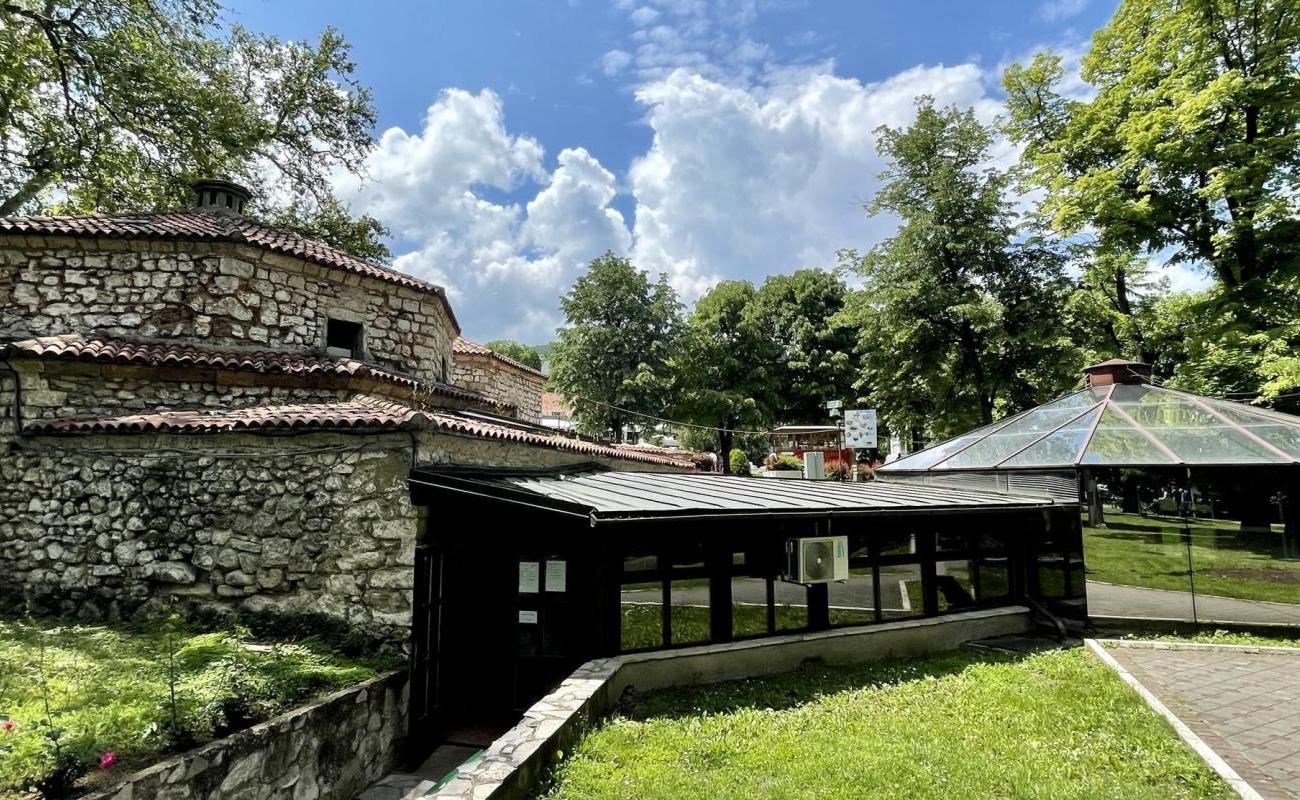Spa Baths Wastewater to Heat Schools

The Municipality of Sokobanja’s idea to replace a coal fired boiler room heating two local schools with a geothermal heat pump is among the 16 innovative solutions to accelerate the green transition of the economy and society that were awarded European Union financial support within the ‘EU for Green Agenda in Serbia’ initiative.
Geothermal water has been used in Sokobanja for centuries to treat and mitigate various ailments, and soon this water will have an added purpose – heating schools. Spa bath thermal wastewater will be used to heat both municipal schools: ‘Mitropolit Mihailo; primary school and ‘Branislav Nušić’ high school, totalling more than 7,000 m2 of surface area to be heated.
– The treatment concept in Sokobanja consists of inhalation and a relatively brief stint in bathtubs filled with thermal mineral water, which is subsequently discharged into the nearby town stream. The discharged water is free of any contaminants. This is why it can be captured at the town stream entrance point and used to heat buildings. Considering the temperature of this water is 32 degrees, much less energy is needed to heat it up in the heat pump – they explained in the municipality of the biggest tourist destination in Serbia.
The new pollution-free heat source is expected to be complete before the next heating season. This is crucial because, as the representatives of the municipality said, this boiler room is currently the air pollution black spot in the Sokobanja town urban core.
– The idea of using geothermal water energy for heating purposes has long been on the table, but this is the point we made it happen. We are not aware that thermal and mineral water from a public spa is reused anywhere; it definitely is not the case in this area and this part of Serbia that has abundant thermal mineral water springs (Gamzigradska, Niška, and Vranjska Banja). Having said that, this solution could be an example for other areas – Sokobanja officials hope.
Under the Feasibility study on using thermal mineral waters and other renewable energy sources for heating in Sokobanja, commissioned by the municipality in 2017, fossil-fuel-burning boilers should be replaced in nine public buildings in the town centre, which will gradually be implemented by the municipality in the coming days, subject to available finance.
The Municipality of Sokobanja underscores the importance of introducing local-level initiatives leading into the green transition because of the rising air pollution issue, which is particularly pronounced during the winter months. They maintain local self-government units (LSGs) do not have sufficient human or financial capacities to be drivers of the green transition, but that they can and should be pioneering various local-level initiatives.
– Today most of our LSGs are implementing measures in cooperation with the Ministry of Environmental Protection, co-funding the energy rehabilitation of family homes and apartment buildings, replacing heating sources with energetically more viable solutions and installing solar panels to generate electricity on family homes. These measures are not enough for the green transition, and this is why we should additionally educate local self-governments about opportunities to reduce environmental pollution, increase the share of renewable energy sources, enhance natural resource- and waste management, and additionally motivate citizens and the industry to make these changes.
As they say, Sokobanja is aware of the importance of making these changes. Local assembly members adopted a declaration back in 1991, declaring Sokobanja an environmentally friendly municipality.
– Today we have no industrial polluters on the territory of our municipality, and we are slowly phasing out fossil fuel. Our motto is ‘Sokobanja, Serbia’s Green Heart’ and we try to live up to it – municipal representatives said.
The new Challenge for Innovative Solutions for the Green Transition was announced in February this year and will remain open until the end of 2026, with the goal of supporting innovative solutions in all five areas of the Green Agenda for the Western Balkans.
The ‘EU for Green Agenda in Serbia’ project, technically and financially supported by the European Union and implemented – in partnership with the Ministry of Environmental Protection – by UNDP, in cooperation with the Embassy of Sweden and the European Investment Bank (EIB), with additional funding provided by Governments of Sweden, Switzerland, and Serbia.
